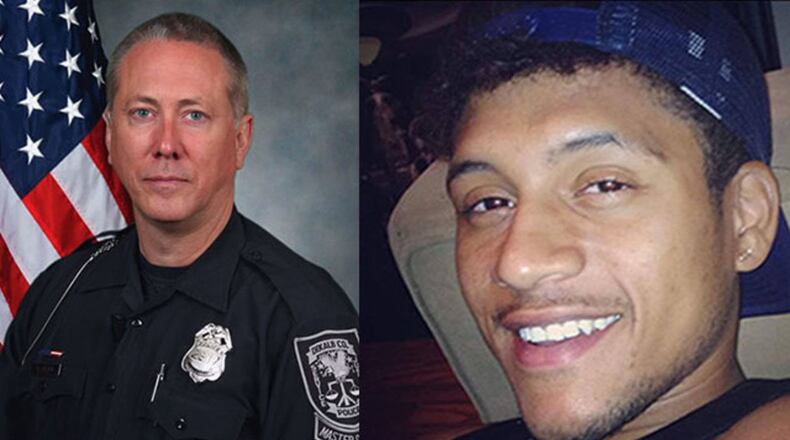It’s not so much about who’s allowed in, but who’s kept out.
That’s how success might be measured by attorneys in the murder trial of former DeKalb County Police Officer Robert “Chip” Olsen as they begin the difficult task of selecting a jury. The process begins today and could last a week, if not more.
In a case in which the defendant is a white cop and the victim, Anthony Hill, a young black male, the challenge could be even greater.
Race isn’t the only dividing point. Jurors also will decide what constitutes excessive force by law enforcement, an issue that engenders strong feelings often informed by personal experiences.
RELATED:
Prosecutors, defense spar in advance of DeKalb cop’s murder trial
DeKalb officer indicted on murder charges in shooting of unarmed civilian
State discloses plea offer rejected by ex-DeKalb cop charged with murder
The jury pool will draw from one of the most diverse counties in Georgia. A little more than half of DeKalb’s residents are black; whites make up one-third of the populace.
“In this case, where you’re defending a police officer and it’s a white-on-black shooting, this may not be the best county for that kind of case,” said Decatur defense attorney Bob Rubin. “You may find a pretty hostile environment in the courtroom for jury selection. And you may hope it goes so badly that you end up getting a change of venue to a different county.”
That’s the worst-case scenario in a case that dates back more than four years. On March 9, 2015, Olsen responded to a call about a man, “possibly demented,” walking naked outside a Chamblee apartment complex. Hill, an Afghanistan War veteran, ran towards Olsen, ignoring commands to stop. The former police officer said he feared for his safety and acted in self-defense.
Former DeKalb District Attorney Robert James saw it differently, indicting Olsen on two counts of felony murder. He said many prospective jurors will start off with fixed opinions unlikely to change.
“A lot of your jurors in DeKalb have had experiences that force them to see law enforcement and government a different way,” he said. When you ask them who has a bad experience with law enforcement officers, “about 90 percent of their hands go up,” James said.
“You’re going to have a handful of people that are very conservative and you know that would always always give more credence, more credibility to a law enforcement officer’s version of events and have a bias leaning in that direction,” he said.
As with some other issues, race also influences how people feel about police.
“You’ve got a white police officer, you’ve got a black victim, and the climate that we have got going on right now in the country in regards to law enforcement officers and deaths, shootings of black citizens … ” said criminal defense attorney Keith Adams, who’s tried cases in DeKalb for years. “That’s going to be an issue for Olsen.”
It’s one the defense can’t ignore, he said.
“The defense is going to want folks who would sympathize with Olsen,” Adams said. “No one’s going to say this, but they’re going to want some white folks on that jury. They’re going to want some people who will tend to be more law enforcement oriented on that jury.”
But Hill’s background, namely his military service, complicates that traditional calculus.
“Now, that’s a little tricky because the same folks who are law enforcement oriented are going to be folks who like military folks, and the deceased in this case is a military veteran,” Adams said.
In the end, nothing will influence the outcome more than one juror with a closed mind.
‘What I’ve learned from my experience in these high-profile cases, if you get one of those people on the jury you can use every trial tactic you learned in law school or were taught by some of the best lawyers in the world, that person will not budge,” James said.
“That person will not budge. And that’s just the reality of it, the social dynamic of it.”
About the Author
Keep Reading
The Latest
Featured


